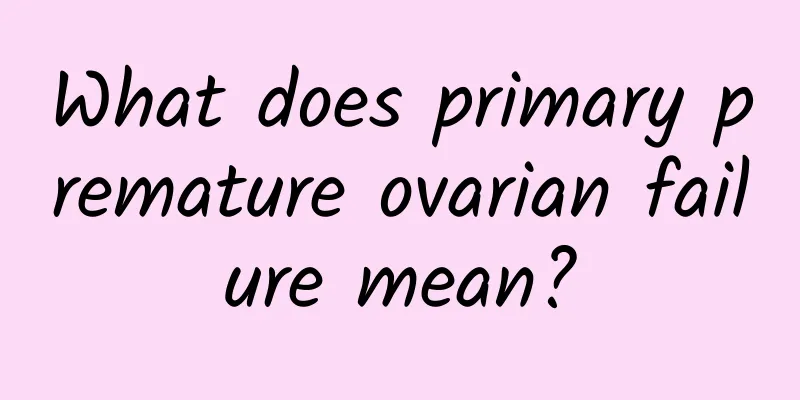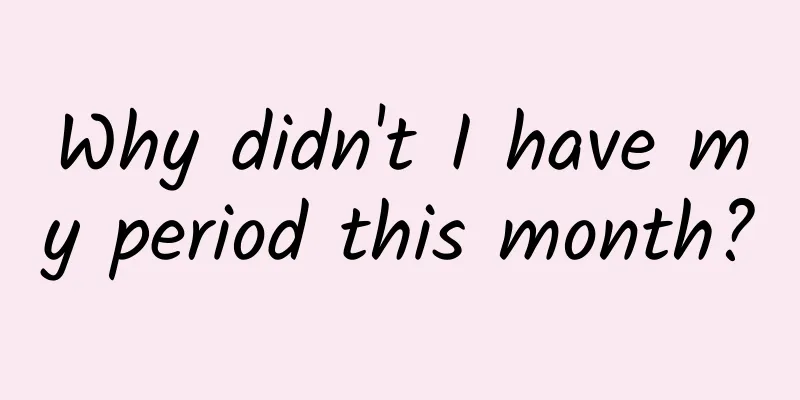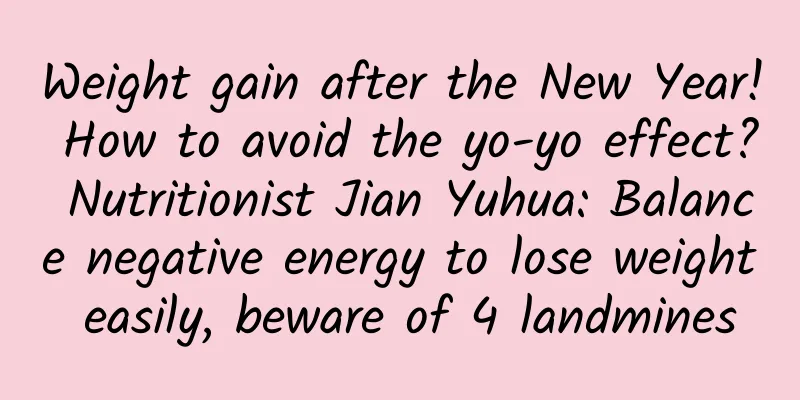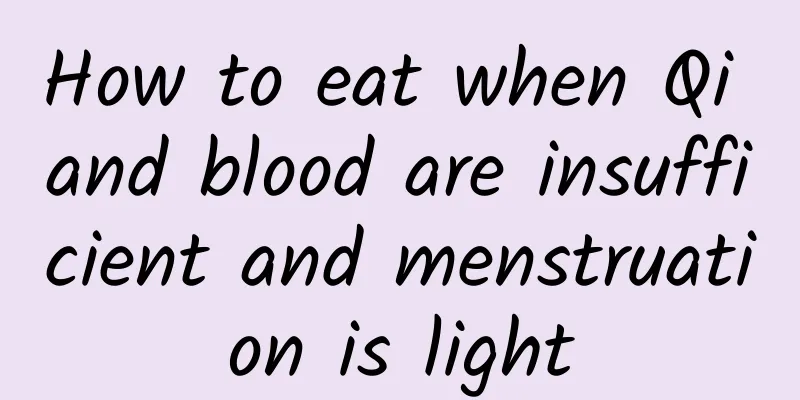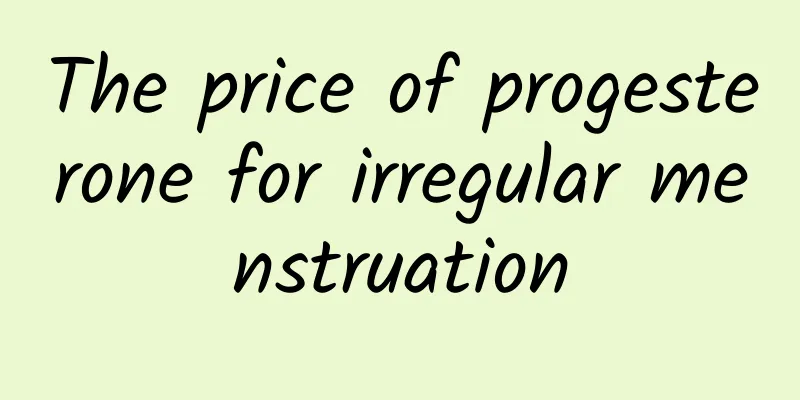To reduce sugar and lose weight, you just need to cut out starch and eat more meat? Famous doctors help you debunk 10 myths about sugar-reducing diets
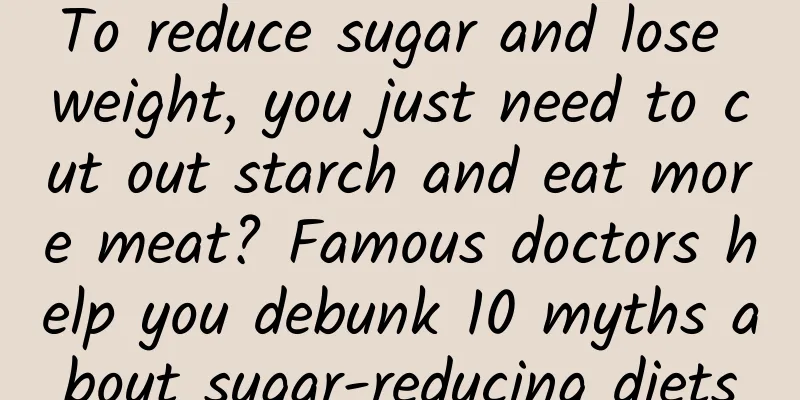
|
Many people try various weight loss methods, but all end up failing in the end, mainly because of some myths. The popular "reduced sugar diet to lose weight" is an obvious example, including "reducing sugar means cutting out starch?" "Reducing sugar means eating a lot of meat?" "Can I only eat reduced-sugar bread and biscuits?" Let the weight loss experts debunk the "10 major myths about reduced-sugar diets." Since a sugar-reducing diet is easier to follow than extreme diets such as fasting, and its content is very close to the average person's daily diet, it attracts many people to join the ranks of not eating/eating less starch and only eating high-protein foods. In their co-authored book "Successfully Lose Weight in One Go without Pain: Famous Weight Loss Doctors Decipher the NG Weight Loss Methods That Make You Fail Again and Again", Liu Bowen, a famous weight loss doctor, and Pan Junheng, an obstetrician and gynecologist, stated that this is actually inappropriate, because if you only eat protein and not starch for a long time, the body will consume protein as calories. When the protein in the body decreases, immunoglobulins will also decrease, which is likely to cause physiological abnormalities. Reducing sugar intake can help with weight loss to a certain extent, but many factors still need to be considered when using a sugar-reducing diet to help lose weight, so as to avoid losing weight but harming your health. Here are 10 myths about reducing sugar intake: 1. Does reducing sugar mean cutting out starch? A reduced-sugar diet is actually a relatively loose low-carb diet. The proportion of sugars is approximately 26% to 45% of total calories. Foods containing sugars, such as whole grains, fruits, and fresh milk, can be controlled within this range. They cannot be completely avoided. What should be quit are sugary drinks, sweets, snacks, and other foods containing refined sugar. Any diet method must take into account both calorie control and nutrient requirements. Eating a lot of low-sugar foods but the overall calories exceed the body's needs will still not achieve the effect of reducing fat/weight. 2. Do I need to eat a lot of meat on a reduced-sugar diet? If the proportion of protein and fat does not increase after reducing sugar, hunger will easily occur. It is recommended to increase the intake of protein food appropriately when reducing sugar. The additional protein should preferably be plant protein, such as: tofu, dried tofu, edamame, black beans, etc., to avoid excessive intake of saturated fat. 3. Should we not eat foods with a high glycemic index (GI value)? Most experts recommend that a sugar-reducing diet should include more low-GI foods, because low-GI foods are less likely to cause blood sugar fluctuations and are less likely to stimulate large amounts of insulin secretion. They are more beneficial for blood sugar control, reducing fat accumulation, and increasing satiety. However, foods with high GI values do not necessarily make people fat (similarly, not all low GI foods have a weight loss effect). For example, nutritious fruits such as watermelon and lychee, although their GI values are relatively high, are fine as long as the portion is controlled and consumption is avoided on an empty stomach. 4. Fresh milk has a high lactose content and cannot be consumed? Although milk contains lactose, the digestion rate of lactose is not fast. In addition, milk protein and fat can slow down the digestion rate, so it has little stimulation to blood sugar. In addition, milk contains a variety of vitamins and minerals necessary for the human body and is very good for health. Therefore, there is no need to eliminate milk from your diet. Although milk contains lactose, the digestion rate of lactose is not fast. In addition, milk protein and fat can slow down the digestion rate, so it has little stimulation to blood sugar. In addition, milk contains a variety of vitamins and minerals necessary for the human body, which is very good for health. 5. Is a reduced-sugar diet suitable for everyone? For people with diabetes, kidney disease and chronic diseases, a sugar-reducing diet needs to be planned by a nutritionist or doctor. A sugar-reducing diet also needs to be specially designed for people who exercise a lot and athletes. Children, teenagers and pregnant/lactating women are advised to eat a balanced diet and are not suitable for a sugar-reducing diet. Don't strictly limit sugar when you're exercising more, under a lot of stress, or thinking more. Adding some good carbohydrates at the right time can help you better control your diet. It's better to wait until your body recovers before reducing sugar. 6. What should I do if I feel hungry after a low-sugar diet? Human hunger is the result of the interaction between the hypothalamus and the digestive system. If the food portion is too small or the calories are too low, it cannot transmit the satiety message to the brain, so there will be a feeling of "not full". In addition, the characteristics of the food itself will also affect the satiety of the diet. For example, oily foods take longer to digest, so they can prolong the feeling of fullness. High-fiber, low-GI foods have less stimulation on blood sugar, and the feeling of fullness is usually better. The key to feeling full without taking in too many calories is to eat enough vegetables (at least 1 plate per meal), an appropriate amount of protein and fat (do not eat boiled meals), and whole grains (sweet potatoes, oats, brown rice, etc.) as staple foods. You should also change the order of eating and start with foods with lower calorie density. 7. Is a reduced-sugar diet suitable for pregnant women and breastfeeding women? Women need more nutrients such as vitamin B1, B2, magnesium, iron, zinc, etc. during pregnancy and breastfeeding than the average adult women. Therefore, it is recommended not to adopt any special diet during pregnancy and breastfeeding. The best way to supplement various nutrients is to eat a balanced diet. 8. How to deal with the sudden hunger that occurs after excessive brain activity or heavy training? The human body's demand or desire for carbohydrate foods is not constant. Brain function and muscle movement require the assistance of carbohydrates. When the brain is overused and physical training is strengthened, if the body does not have enough carbohydrates, you will want to eat a big meal. Therefore, when you are exercising more, under a lot of stress, or thinking more, do not strictly limit sugar. Adding some good carbohydrates at the right time can help you better control your diet. It is better to wait until your physical condition recovers before continuing a sugar-reducing diet. 9. Can I only eat reduced-sugar bread and biscuits? Most of the sugar-reduced breads, biscuits, and lunch boxes on the market have been adjusted in recipes, replacing refined carbohydrate ingredients such as white flour and sugar with whole-wheat flour, bean dregs, almond powder, sweeteners, etc. Therefore, the overall sugar content is lower and the nutritional value is relatively higher. Therefore, it is okay to eat these foods during the sugar control period. However, you still need to pay attention to other ingredients besides sugar, such as sodium, fat, and additives. Otherwise, in order to control sugar, you will consume too many other harmful ingredients, which will be detrimental to your health and weight loss. 10. Why am I not losing weight on a low-sugar diet? Any diet method must take into account calorie control and nutrient requirements. Eating a lot of low-sugar foods, but the overall calories exceed the body's needs, still cannot achieve the effect of fat reduction/weight loss. Most low-sugar diets will have a significant weight loss effect within 6 months, and the effect will diminish thereafter. |
Recommend
Can you tell the difference between the red, yellow and green lights of caffeine? One table to understand! Doctor: Don't ignore these 4 hidden caffeine foods
More than just coffee! The Ministry of Health and...
Which hospital is professional in treating functional uterine bleeding?
There are many patients with functional uterine b...
Why do women get cervical erosion? Revealing the real cause of cervical erosion
Erosion, these two words are scary, they easily r...
What should I pay attention to when I have uterine fibroids?
Uterine fibroids are the most common disease of t...
Can female cervicitis be cured? Will cervicitis lead to infertility?
The female reproductive system is relatively clos...
What if I haven't had my period for 34 days? It may be normal
It is normal to miss your period for 34 days, bec...
Can I eat strawberries after a miscarriage?
There are many things to pay attention to in wome...
Are cervical warts life-threatening?
As the incidence of cervical warts gradually incr...
Uterine hypoplasia can easily lead to dysmenorrhea
It is very common for women to have dysmenorrhea....
What to eat after abortion to get rid of uterine cold
After an abortion, you can eat warm and nourishin...
Fight body fat! Drink 3 fat-burning teas at the right time
Compared with losing weight, reducing body fat is...
When eating zongzi during the Dragon Boat Festival, you must learn how to substitute zongzi ingredients and choose the right sauce, and enjoy these 5 tips to lose weight without any burden!
There are actually tips for eating rice dumplings...
Symptoms of uterine fibroids Are the symptoms of uterine fibroids obvious?
We should pay attention to abnormal menstruation,...
Can eating basil candy help you lose weight? Child prodigy lost 23 kg, are these five foods the key?
What should I do if I love snacking but want to l...
Secondary dysmenorrhea is caused by many factors.
Secondary dysmenorrhea is caused by many factors,...
